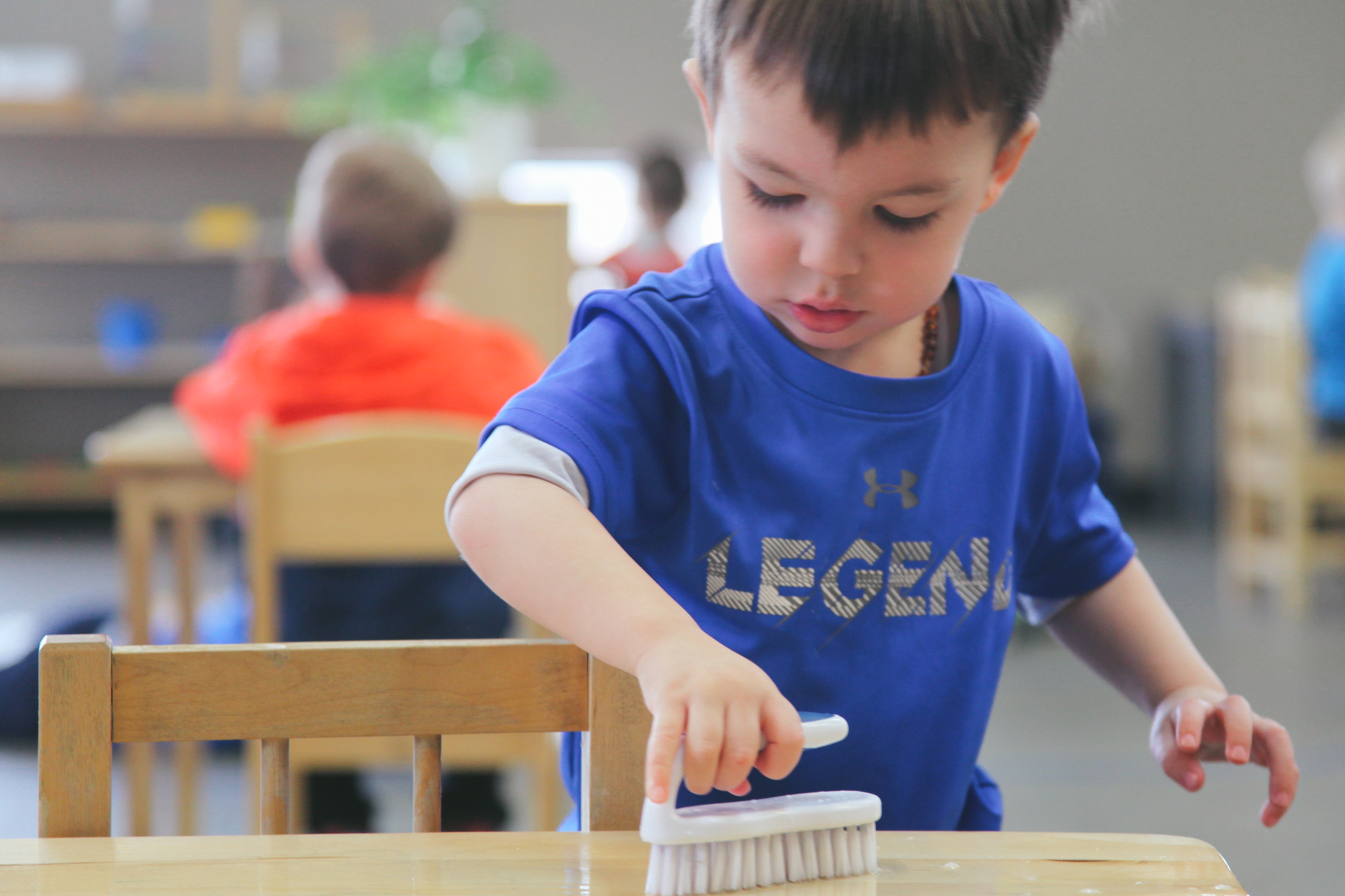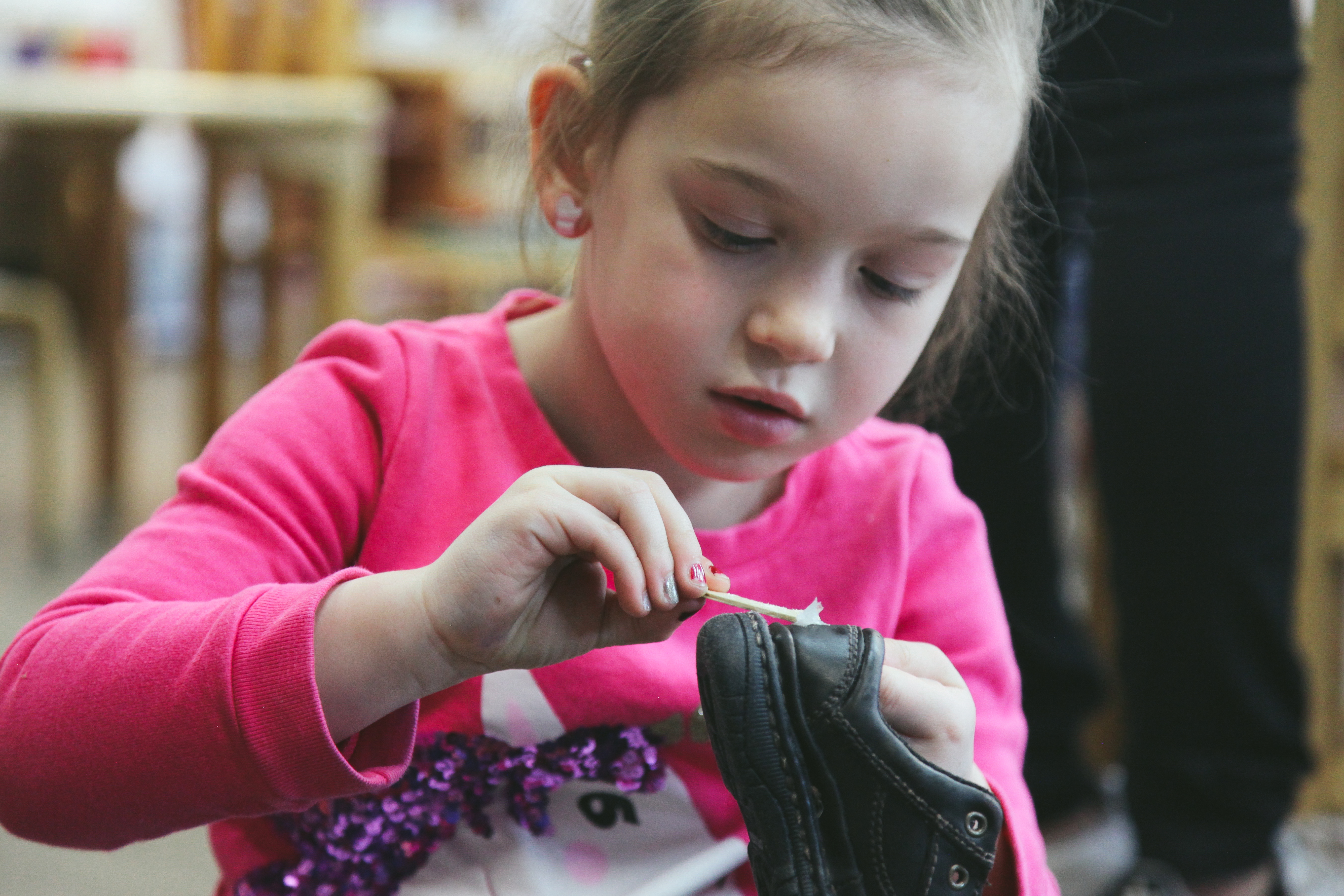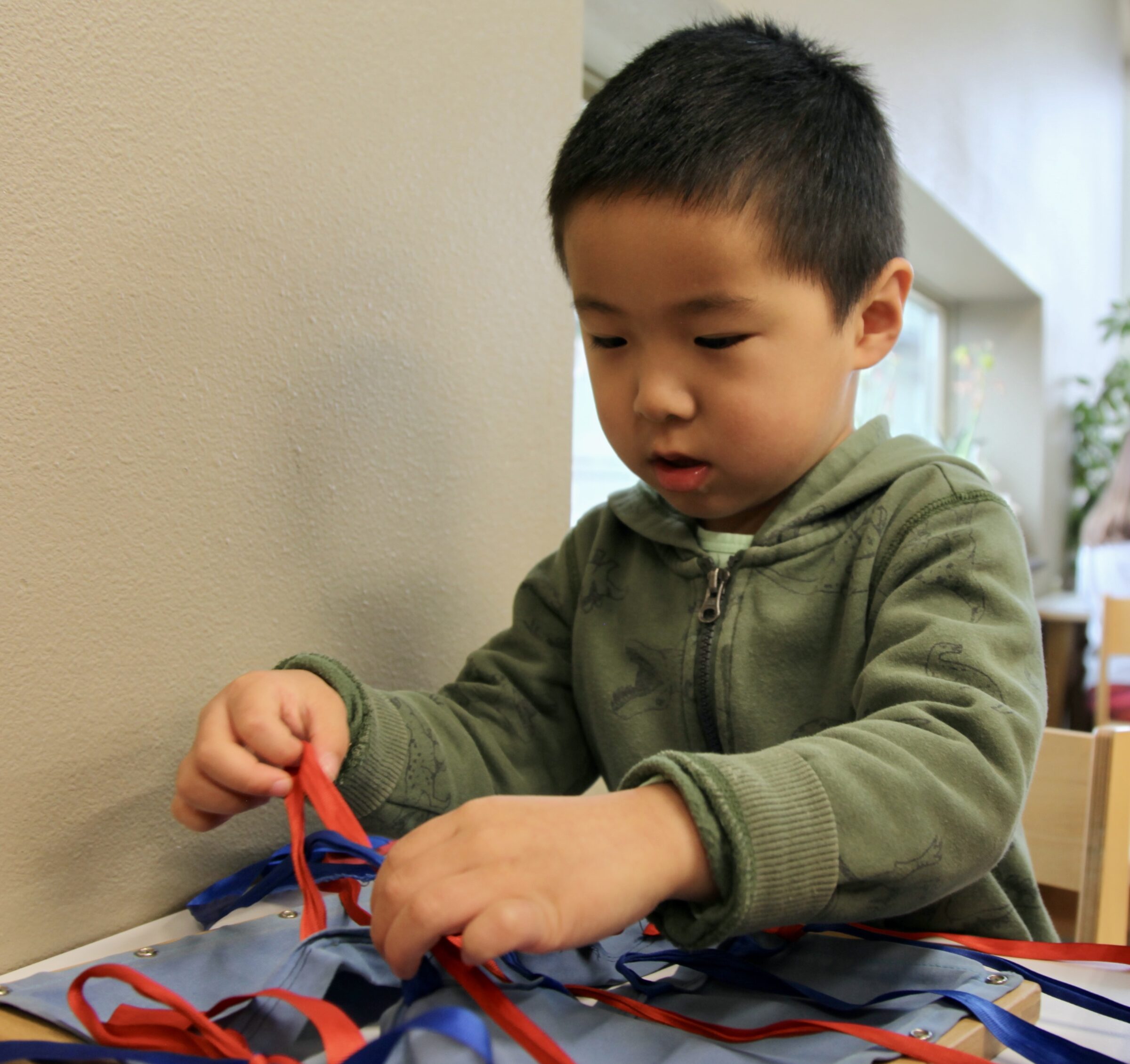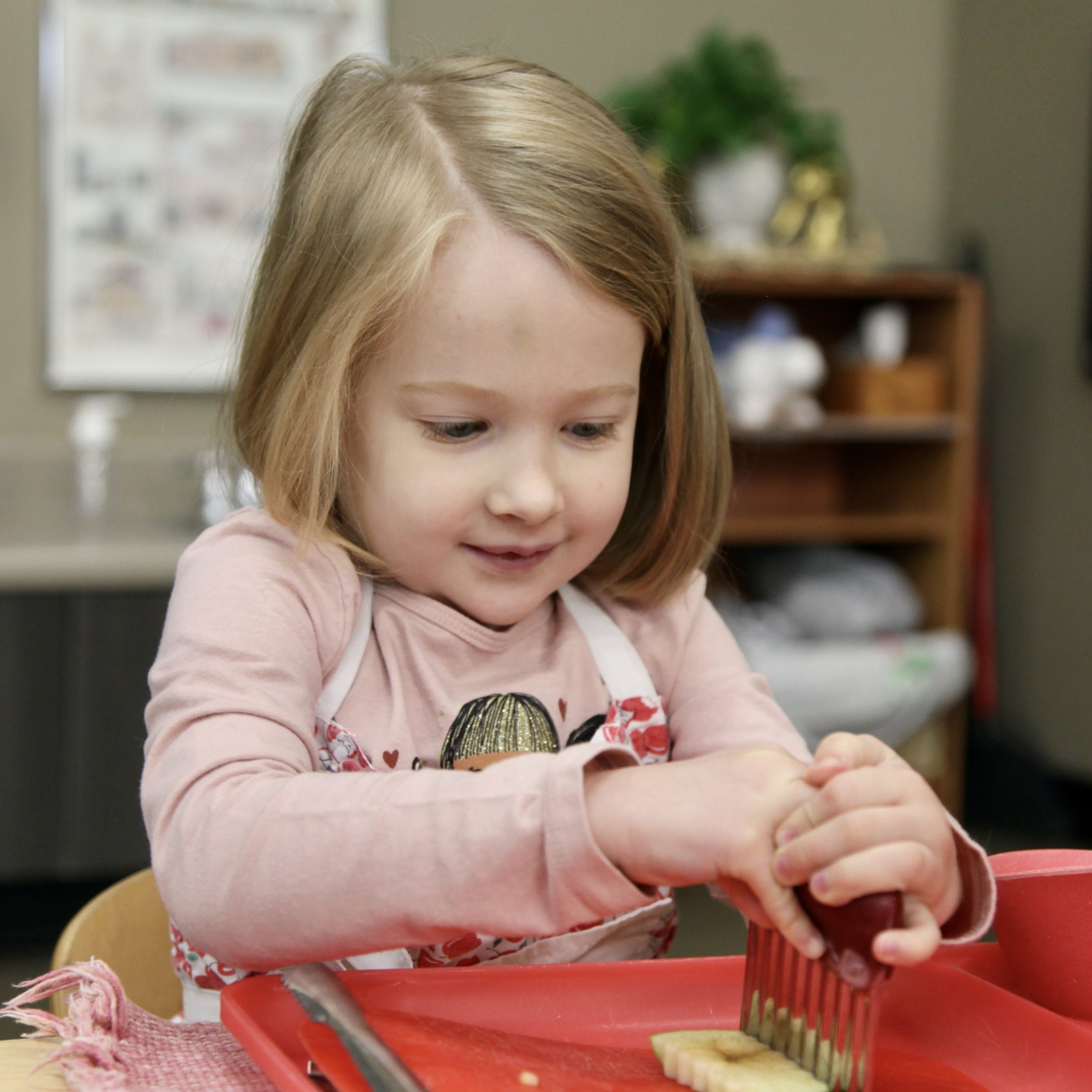Montessori Chores
Podcasts
This subject is way more fun than the word “chores” connotes, and not just because we put the word “Montessori” in front.
Stay with me.
Children want to be just like us. It’s the driving force behind learning to walk and to talk, it’s why we see ourselves (sometimes alarmingly so!) in a child’s mannerisms or speech, it’s why children will always do what we do rather than what we say.
They see us tidying at home, washing dishes, setting the table, folding the laundry, and they want to, too. They want to help. They want to contribute.

When we’re asked, what can we do at home to support the work my child is doing in the classroom, or when prospective parents wonder why children are cleaning and tidying as part of their big important work, we aren’t surprised when “Joyful, purposeful work” is met with skepticism. After all, washing dishes is the short-straw job at my house.
But children don’t have our baggage. They don’t see “have to,” they see “get to.” They see “just like Dad.” They see, “I matter. I’m making a contribution, too. I’m helping.”
Belonging. In this family, this is what we do. Selfless acts expressing confidence, independence, contribution to the group.
Additionally, there are direct academic benefits. Development of logic. Seeing a project through to the end. Increasing levels of challenge which build on previous mastery and success. Attention to detail.
We haven’t even touched on all the significant developmental benefits — gross and fine motor control, coordination, concentration, to name a few.

Yes, for us, it’s folding endless loads of laundry, a true chore in the most emotional sense of the word. For a one-year-old it’s moving things from the washer to the dryer and putting your own clothing in the hamper. For a two-year-old it’s matching and rolling socks. For a four-year-old it’s hanging and putting away clothing, maybe even folding and putting away towels. For a six-year-old, perhaps it’s the whole process, from sorting to loading to folding, with a bit of help from a caring adult or older sibling, since these things are always better together.
There are so many reasons why we engage children in joyful, purposeful work, also known as Practical Life at school, or chores at home. Here are some ideas of what to do, some borrowed from the classroom!
For Toddlers, children under three, here are a few ideas.
- Putting their dishes in the dishwasher.
- Folding napkins.
- Pairing and folding socks.
- Sorting clean flatware.
- Caring for their clothes — putting dirty clothes in the hamper, putting clean clothes in a drawer.
- Putting away toys and books.
For Primary Children, from three to six, larger sequences of work are possible.
- Folding laundry.
- Hand washing and drying dishes, or loading and unloading the dishwasher.
- Setting the table.
- Watering plants.
- Caring for a pet — feeding, brushing, walking with help.
- Making the bed.
Even younger children notice the model we are presenting, and we can involve them in the process. Talking through the laundry process with a baby in a sling or carrier. Wiping down the table after a meal and giving a baby a cloth to help. Admiring your work after a job well-done.

Older children can build on the skills they already have. Maybe a child who has been helping with dishes would like to help prepare a meal. Even very young children can help scramble an egg, with guidance, support, and careful modeling by an adult. As a child grows, so do their capacities, and so can their responsibilities. Helping to set up before and tidy after a meal can grow into contributing to the meal, such as washing vegetables for a salad, and later even planning and helping to shop for a meal, and seeing the process through start to finish.
“Even younger children notice the model we are presenting, and we can involve them in the process.”
In helping children develop these skills, we’re also helping them to become capable adults. We don’t need to wait until we move out of the house to learn how to do the laundry, or boil water.
When we all contribute to the tasks that need to be done, we all get to relax and enjoy one another’s company, too. We can all help out with our favorite tasks, and all chip in with those tasks which aren’t anyone’s favorite. We can all help.
Written by:
Charlotte Snyder



